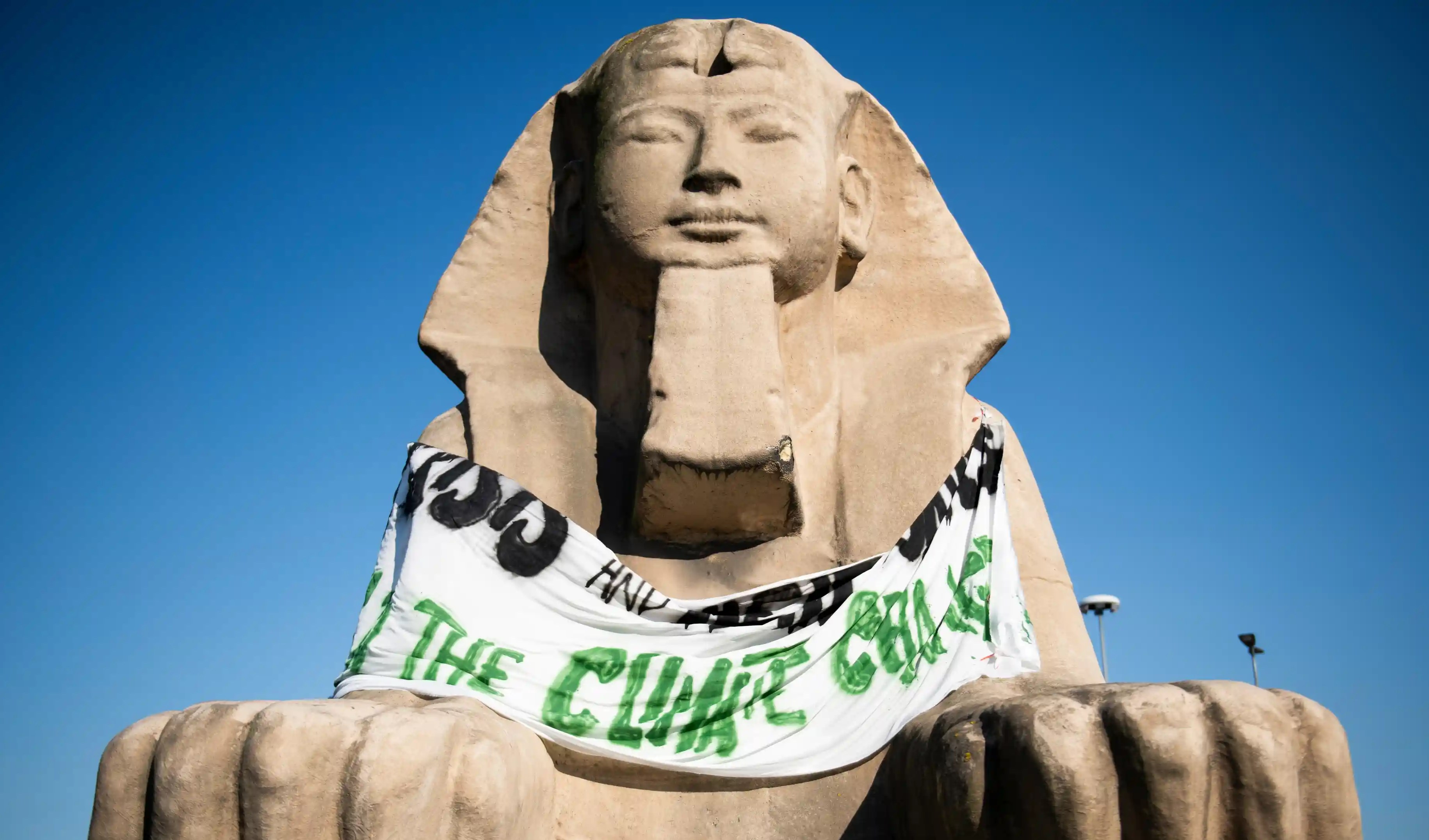'In 100 years, all these antiquities will be gone': Egypt
As the latest UN Climate Change Conference begins in Egypt, climate change is destined to hit art institutions on one way or another.
-

Activists hang protest banner on the Sphinx outside the Egyptian Museum in Italy. (Getty Images)
The 27th United Nations Climate Change Conference, COP27, begins on November 6 in Sharm El-Sheikh, Egypt. Never before has a COP summit been held in a country so inextricably linked to ancient monuments, from the pyramids to the Sphinx and Tutankhamun's tomb, all of which face escalating risks from harsher weather, hotter temperatures, and rising seas.
Egypt's Former Minister of State for Antiquities Affairs, Zahi Hawass, said that practically all open-air archaeological monuments in Egypt are in grave danger.
"In my opinion, all of these antiquities will be gone in 100 years due to climate change," he warned.
Delegates at COP27 will debate whether museums should abandon their historic posture of "climate neutrality" in favor of climate action. Is the argument, however, still necessary?
Read next: Drought reveals ruins of 3,400-year-old lost city in Iraq
The American Alliance of Museums commissioned research in 2021 that revealed museums to be the second most trusted source behind friends and family, and far ahead of scientists, NGOs, the media, the government, and businesses. Should this trust bank be used for the common good?
Robert Janes is a researcher at Leicester's School of Museum Studies and was the editor-in-chief of the Museum Management and Curatorship journal from 2003 to 2014. He writes for the online journal The Beam, “Why is the global museum community not confronting climate change with its collective will and intelligence? One explanation is that climate change is a taboo subject—not to be talked about with family, friends, and colleagues.”
This taboo must be demolished. “Radical changes are needed across society to ensure global heating remains below 1.5°C,” said Rodney Harrison, the professor of heritage studies at University College London.
Read next: Egypt hopes geopolitics won't hinder UN Climate Change Conference
"Museums could play a leading role in these transformations, but they can only do so if they make significant changes to the way they operate and communicate.”
“The frustrating thing is—this is all already agreed,” says Henry McGhie, founder of climate consultancy Curating Tomorrow. “The governments of all the countries that are party to the UN Framework Convention on Climate Change [UNFCCC] and Paris Agreement already recognize this. They have adopted a new program, but this doesn’t seem to have bled down to the workings of many museums. We have a golden opportunity to act on climate change as a sector, but we’re not making use of it.”
In addition to the COP summits, the UN hosted Mondiacult (the Unesco World Conference on Cultural Policies and Sustainable Development) in Mexico City this September. It was held 40 years after the inaugural Mondiacult conference and was solely focused on UNESCO's cultural policy and how it connects to globally approved sustainable development and climate change policies.

 3 Min Read
3 Min Read








